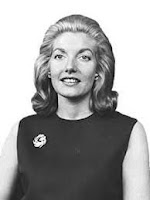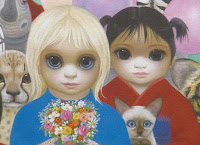I first knew of Barbara Ehrenreich from a mutual acquaintance as another freelance writer struggling to get published and especially to get paid. This puts additional light on her most cited work, Nickel and Dimed: On (Not) Getting By in America, in which she documented her own experiences working at minimum wage jobs. But she was also well-educated and well-connected, and was published in the best newspapers and periodicals. Besides her single subject books, like the aforementioned 2001 volume, her periodical pieces were collected. For instance a volume covering the 1980s, which was for her (and many others) a grim and disenchanting decade, as reflected in her title: The Worst Years of Our Lives: Irreverent Notes from a Decade of Greed. Her 1995 collection is titled The Snarling Citizen. All of these essays exhibit her wit as well as insight. She spotted important destructive trends which unfortunately still pertain. Throughout the decades, she wrote with great acuity about the conditions and injustices women face (and she faced some painful ones herself), and for that and her lively if uncomfortable reporting on both gender and class, she deserves to be read and remembered, learned from and imitated.
Greg Bear was a productive and insightful science fiction writer who I met at a Star Trek convention in Seattle, where he was based. I especially admire his visionary novel Darwin’s Radio.
 |
| Hazel Henderson |
I once saw Hazel Henderson essentially take over a World Future Society convention. As a futurist, environmental activist and economist, she was most dynamic in person, but she reached wider audiences with her books, including Creating Alternative Futures and Building a Win-Win World.
Suzi Gablik was an artist who wrote about art. In 1970 she published the first in- depth book on Rene Magritte (and helped make him the highly visible artist he is today), after living with the artist and his wife. In the 1990s she broadened her conception of art to include Indigenous and other worldviews, publishing The Reenchanment of Art. As she became more concerned about self-destructive civilization, she published Conversations before the end of time, a collection of amazing interviews. Both I consider to be landmark books.
Ted Mooney’s day job was editing Art in America (so he may have edited Suzi Gablik.) But his contribution to literature is his individual vision in four novels, the first being the best known: Easy Travel To Other Planets in 1981, which an American literary critic placed on his list of the best 100 novels of the twentieth century.
Roger Angell was best known for his writing on baseball in the quintessential New Yorker style, but he also wrote fiction and other non-fiction (plus the witty annual New Yorker Christmas rhymes), as well as serving as the New Yorker’s fiction editor for many years. In that capacity he wrote me the most flattering and most heart-breaking (literary) rejection letter of my life, in which he said the New Yorker “could hardly bear not to publish” my story. History shows they all managed pretty well. Angell was 101.Doris Grumbach wrote novels and was known for literary criticism in the New Republic and other periodicals. Among those she reviewed (approvingly) was novelist Maureen Howard, a writer I also enjoyed.
I admired Nancy Milford’s biography of Zelda Fitzgerald. Hilary Mantel wrote various kinds of novels and stories but is most famous for her historical fiction. Nicholas Evans was a British broadcaster and writer whose best-known book is The Horse Whisperer.
Larry Woiwode published much-praised fiction, essays, biography and poetry from 1969 to 2022. Besides writing some 18 books, he taught writing and ran university writing programs, so his students got the benefit of somebody who walked the walk.
Before he was a familiar narrator for historical and nature documentaries, David McCullough was a prize-winning author on mostly historical subjects. Educated at Yale and a model of aristocratic culture, he was born and raised in Pittsburgh, which may have given him particular perspective on the subject of his first book, the Johnstown Flood.Mike Davis wrote penetrating books about cities and their future, especially Los Angeles. From 1971 to 2012, Todd Gitlin wrote about mass media and politics. Peace activist Staunton Lynd wrote and edited books on political action and nonviolence. William Rivers Pitt is best known for his reporting and political analysis of the American war in Iraq. P.J. O’Rourke wrote from the other end of the political spectrum, though he started out as just a funny guy.
Then there are those who are prominent for reasons other than writing, but also published useful books. The latest name added to this year’s rolls is Barbara Walters, whose death was announced on December 30. She was 93. She was a television news pioneer and an expert interviewer, and she was famous. Though I never met her, I once interviewed her on the phone for a piece on Hugh Downs. Because of her schedule she had to call me, and I didn’t know when she would. When she called—evidently in the makeup chair for some television appearance—I was in the shower. So I in fact interviewed Barbara Walters while naked.Others who authored books in addition to their day jobs were former Secretary of State Madeleine Albright (whose penultimate book was titled Fascism: A Warning), Mikhail Gorbachev, last leader of the Soviet Union; and for all I know, Pope Benedict and Queen Elizabeth.
Scientist James Lovelock saw Earth as a living system, developing (with others) the Gaia Theory, and warned of the dire consequences to the planet of the climate crisis in a series of popular books. He had 102 years of a remarkable life. Environmentalist and writer David Foreman founded Earth First!
Revered Zen monk Thich Nhat Hanh reached millions with his lectures, audio meditations and his many books. Stage director Peter Brook wrote several important books about theatre. Before he made films, Jean-Luc Godard wrote about them, and continued to talk about filmmaking at book length.
Print and television journalists who published books (and some who didn’t) but passed in 2022 include: film critic Sheila Benson, Mark Shields, Bernard Shaw, Bill Plante, Jim Angle, Michael Gerson, John DiStasio, Francis X. Clines, John Hughes, Ann Garrels, Richard Lopez, Shelby Scott (who I remember from WBZ in Boston), and Robert Herman.
In general, writers don’t get a lot of respect in America, though they may be celebrated locally or within a profession. So whatever degree of success or failure, fame or obscurity these following writers had in their lifetimes, as long as they have a book or a periodical piece in a library somewhere, or something buried in the depths of cyberspace, there’s a chance some stranger may read it, and their words will live again.
Also passing away in 2022 were: Andre Leon Talley, Anne Harris, Barbara Love, Geoffrey Asche, Terry Garrity (The Sensuous Woman), Carleton Carpenter, Bruce Duffy, Valerie Boyd, Leonard Kessler, Paul Cantor, Shirley Hughes, Sally Watson, Bethany Campbell, Thomas F. Staley, Sydney Shoemaker, Francois Bott, Tom Maddox, Julia Powell, Sharon Presley, JFK conspiracy theorist David Lifton, Stuart Woods, Joanna Clark, Raymond Briggs, Andrew Hubner, Helen Potrebenko, Terrance Green, Mark Girouard, Michael Malone, Antonin Bajaja, Sue Hardesty, Luis Agular, Jean Franco.
Poets Gerald Stern, Peter Landborn Wilson, Simon Perchik, Dennis Wilson, Noah Eli Gordon. Editor and publisher Jason Epstein, and literary agent Sterling Lord (I was once represented by his esteemed agency.) Let this list also honor the writers whose deaths were unnoticed. May they all rest in peace. Their work lives on.








No comments:
Post a Comment